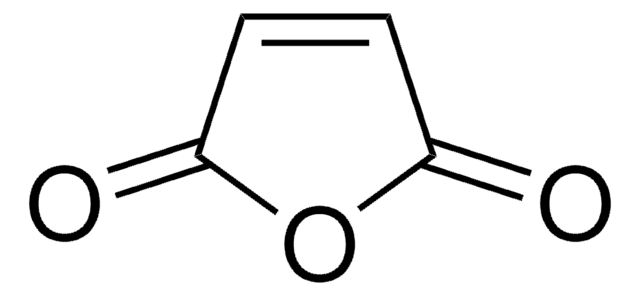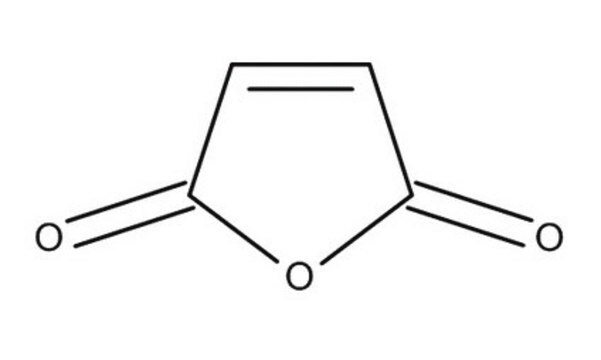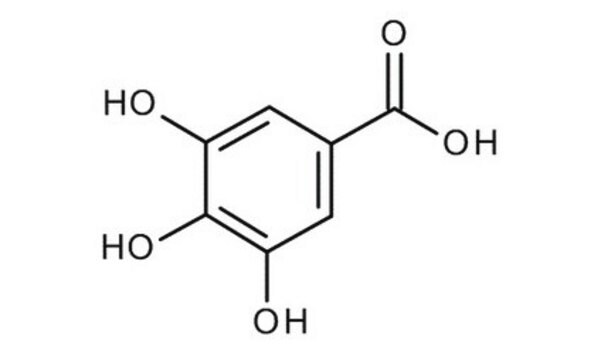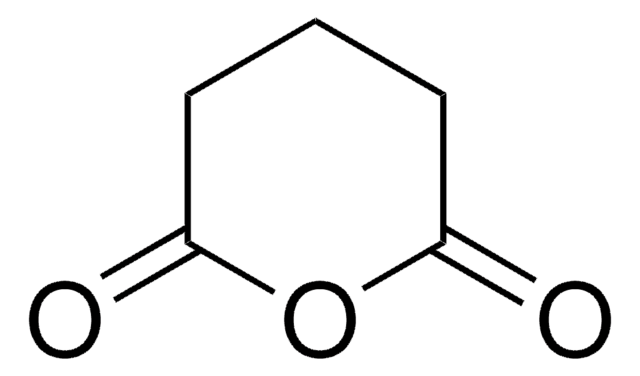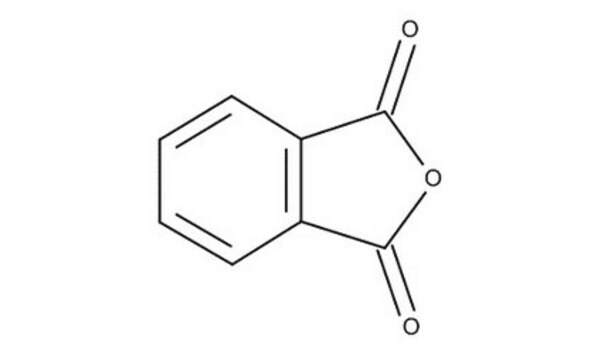8.00683
Succinic anhydride
for synthesis
Synonym(s):
Succinic anhydride
About This Item
Recommended Products
vapor pressure
1.3 hPa ( 92 °C)
Quality Level
form
crystals
autoignition temp.
480 °C
potency
1510 mg/kg LD50, oral (Rat)
pH
2.7 (10 g/L in H2O)
bp
261 °C/1013 hPa
mp
116-120 °C
transition temp
flash point 157 °C
solubility
62.9 g/L (Hydrolysis)
density
1.23 g/cm3 at 20 °C
bulk density
550‑600 kg/m3
storage temp.
2-30°C
SMILES string
O1C(=O)CCC1=O
InChI
1S/C4H4O3/c5-3-1-2-4(6)7-3/h1-2H2
InChI key
RINCXYDBBGOEEQ-UHFFFAOYSA-N
Application
- Enhanced antimicrobial fibers: Succinic anhydride is utilized in the conjugation of chitosan with Harakeke and Hemp fibers to produce antimicrobial fibers, which significantly increase their utility in medical and hygiene products (Barker et al., 2024).
- Antitumor diterpenoids: Succinic anhydride is integral to synthesizing new clerodane diterpenoids from Callicarpa pseudorubella, which show potential antitumor proliferative activity, expanding its applications in cancer research (Pan et al., 2024).
- Nanogel delivery systems: It plays a role in developing nanogel delivery systems for cationic peptides, enhancing the delivery of therapeutic agents and showcasing its versatility in pharmaceutical delivery systems (Mørck Nielsen et al., 2024).
Analysis Note
Identity (IR): conforms
Melting range (lower value): ≥ 116 °C
Melting range (upper value): ≤ 120 °C
Signal Word
Danger
Hazard Statements
Precautionary Statements
Hazard Classifications
Acute Tox. 4 Oral - Eye Dam. 1 - Resp. Sens. 1 - Skin Corr. 1B - Skin Sens. 1
Storage Class Code
8A - Combustible, corrosive hazardous materials
WGK
WGK 1
Flash Point(F)
314.6 °F
Flash Point(C)
157 °C
Certificates of Analysis (COA)
Search for Certificates of Analysis (COA) by entering the products Lot/Batch Number. Lot and Batch Numbers can be found on a product’s label following the words ‘Lot’ or ‘Batch’.
Already Own This Product?
Find documentation for the products that you have recently purchased in the Document Library.
Customers Also Viewed
Our team of scientists has experience in all areas of research including Life Science, Material Science, Chemical Synthesis, Chromatography, Analytical and many others.
Contact Technical Service
